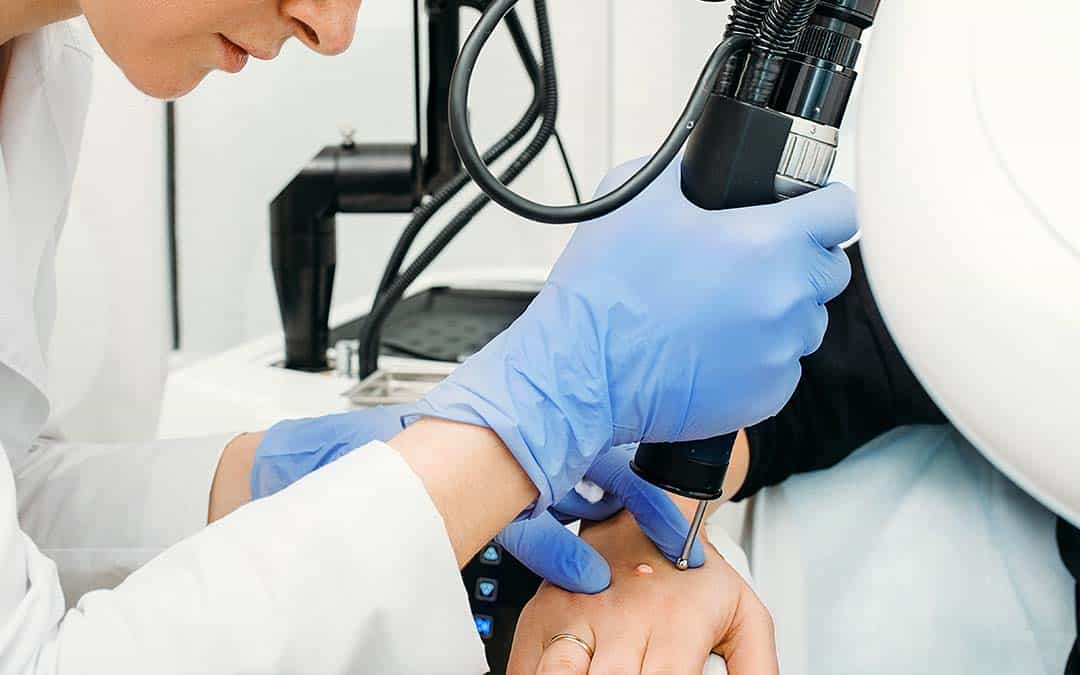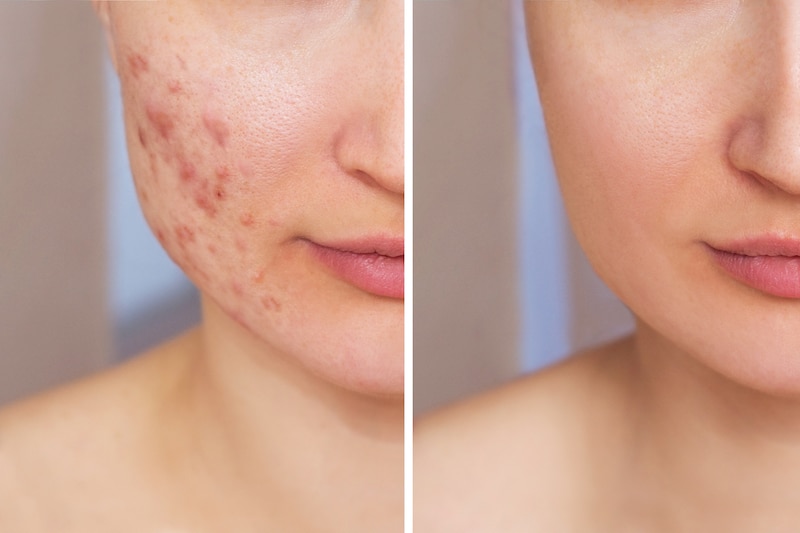Key Elements to Skin Cancer Prevention
To keep your skin healthy and reduce the risk of skin cancer, there are three important things to remember: protect, prevent, and detect.
Protect
The sun can be harsh, especially between 11 am and 3 pm. Try to stay out of direct sunlight during these hours. When you do go outside, wear protective clothing like a long-sleeved shirt with a collar or a special shirt that blocks harmful rays. Don’t forget to wear a hat and sunglasses to shield your face and eyes. Also, apply sunscreen with a sun protection factor (SPF) of 30 or higher at least 20 minutes before going outside. Remember to reapply it every two hours, especially if you’re sweating or swimming.
Prevent
Taking preventive measures is important. By following the tips above and being mindful of sun exposure, you can reduce the damage caused by the sun’s rays. This can help prevent skin cancer and other skin problems.
Detect
Regularly check your skin for any changes or abnormalities. It’s a good idea to have a doctor or dermatologist examine your skin on a routine basis. They can spot any potential issues early on, which increases the chances of successful treatment.
Follow these sun-safe practices to protect your skin and reduce the risk of cancer:
Protect
- Wear sun-protective clothing (cover as much skin as possible)
- Apply sunscreen with broad-spectrum, SPF30 or higher at least 20 minutes before going outside and reapply every 2 hours. If it’s impractical to reapply sunscreen during the day, especially due to makeup, opt for a mineral sunscreen with titanium oxide or zinc oxide. These ingredients create a physical barrier that reflects UV radiation.
- Wear a hat that shades your face, neck, and ears
- Whenever possible, seek shade
- Protect your eyes from UV damage by wearing sunglasses
Prevent:
- Take precautions to avoid sunburn
- Avoid artificial sources of UV radiation like sun lamps, solariums, and sun beds
- Ensure that newborns are kept out of direct sunlight and apply sunscreen to babies aged six months and older
Detect
- Regularly inspect your skin from head to toe each month to spot any changes
- Schedule an annual visit to a dermatologist for a thorough skin examination
Nicotinamide And Skin Cancer Prevention
There is evidence to suggest that nicotinamide, taken in a dosage of 500mg twice a day, may help in the prevention of certain types of skin cancer. Nicotinamide is a form of vitamin B3 and is known for its protective effects on the skin. It has been found to enhance DNA repair and reduce immune suppression caused by ultraviolet (UV) radiation exposure.
Several studies have shown promising results regarding the use of nicotinamide in preventing non-melanoma skin cancers, such as basal cell carcinoma and squamous cell carcinoma. However, it’s important to note that more research is needed to establish the exact dosage, duration, and effectiveness of nicotinamide for skin cancer prevention.
*‘If You Could See UV|Protect Your Skin.’ Youtube by cancerNSW.
*’Ella’s skin cancer story|Protect Your Skin.’ Youtube by cancerNSW.
Key Information
Cryotherapy is used for benign lesions like actinic keratoses and seborrhoeic keratoses, as well as for treating small, superficial skin cancers such as basal cell carcinoma and squamous cell carcinoma on certain body areas.
Yes, cryotherapy should not be used on undiagnosed lesions, melanoma, lesions requiring pathology, areas with compromised circulation, dark-skinned patients, or those with conditions worsened by cold.
It employs a cryogen to cool the lesion to sub-zero temperatures, causing tissue necrosis and damage through thawing-induced osmolarity changes.
Immediate side effects include pain, blistering, and edema. Delayed effects might involve bleeding, ulceration, and possibly permanent skin changes like hypopigmentation or scarring.

Aftercare Instructions for Cryotherapy
Lorem ipsum dolor
WHICH TREATMENTS ARE AVAILABLE?
Book in for a skin consultation with Dr Tina for an individualised treatment plan. Your best treatment will often depend on your age, gender, triggers and causes of your condition.
Dr Tina can advise on a combination including:
Begin your journey now
Individualised assessment and professional care with Dr Tina Fang
Call us on 07 3472 7477


